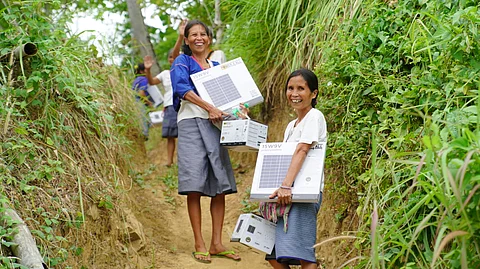
- NEWS
- the EDIT
- COMMENTARY
- BUSINESS
- LIFE
- SHOW
- ACTION
- GLOBAL GOALS
- SNAPS
- DYARYO TIRADA
- MORE

The Philippine government has taken a major step toward protecting Indigenous Peoples and their ancestral domains by developing a National Action Plan on Business and Human Rights.
Malacañang said the plan is a policy framework aligned with President Ferdinand R. Marcos Jr.’s commitment to inclusive development and human rights, as emphasized in his 2025 State of the Nation Address.
The first multi-agency workshop to develop the NAP-BHR was held on July 15 in Makati City, gathering over 50 representatives from 25 government agencies engaged in Indigenous rights, business regulation, and sustainable development.
With the theme “Toward a Philippine National Action Plan on Business and Human Rights: Strengthening Protection for Indigenous Peoples and Ancestral Domains,” the workshop was led by the Presidential Human Rights Committee Secretariat in partnership with the National Commission on Indigenous Peoples, civil society organizations, and the European Union Delegation to the Philippines, through the Land Justice Initiative.
PHRCS Executive Director Undersecretary Severo Catura emphasized that justice, unity, and respect for Indigenous cultures must be central to national policymaking.
Former Commission on Human Rights official Judge Jesus Torres highlighted the relevance of the United Nations Guiding Principles on Business and Human Rights, which underscore the state's obligation to protect human rights, the private sector's responsibility to respect them, and the need for accessible remedies when violations occur.
Meanwhile, Legal and policy expert Atty. Reina Bermudez also provided insight into the Philippines’ legal and policy landscape on business and human rights, stressing the need for governance systems that balance economic development with social justice.
A second workshop will be conducted to gather input directly from Indigenous communities, civil society, and the private sector. A technical working group, led by the NCIP, will then draft a preliminary version of the action plan for broader consultation and review.
The NAP-BHR will form part of the Philippine Human Rights Plan 2024–2028, aiming to uphold Indigenous rights and cultural heritage amid expanding commercial activities and land development pressures.
